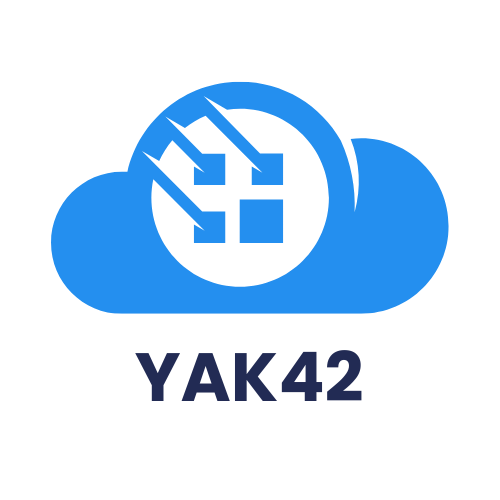Table of Contents
ToggleIn a world where data breaches feel as common as a bad hair day, blockchain technology swoops in like a superhero wearing a digital cape. It’s not just for cryptocurrency anymore; it’s the secret weapon against data theft and cyber shenanigans. Imagine a vault that not only locks up your information but also guards it with an army of cryptographic ninjas.
With blockchain, data security takes a leap into the future, offering transparency and tamper-proof records that make hackers weep. Organizations are discovering that this decentralized marvel isn’t just a trend; it’s a game changer. So buckle up as we dive deeper into how blockchain is reshaping data security and why it’s the must-have armor for businesses in the digital age.
Understanding Blockchain Technology
Blockchain technology serves as a critical component for enhancing data security across industries. This framework enables organizations to protect sensitive information while maintaining transparency.
Key Concepts of Blockchain
Decentralization empowers blockchain by distributing data across multiple nodes. Each node contains a copy of the entire blockchain, ensuring data integrity. Immutability describes how transactions, once recorded, cannot be altered or deleted. Smart contracts automate transactions based on predefined conditions, minimizing human intervention. Transparency provides all parties access to the same data, fostering trust among users.
How Blockchain Works
Blockchain operates through a series of interconnected blocks. Each block houses a list of transactions, a timestamp, and a unique cryptographic hash, linking it to the previous block. When a transaction occurs, it undergoes validation from multiple nodes, ensuring accuracy and preventing fraud. Once verified, the transaction gets added to the next block in the chain. This sequential addition creates an unchangeable record, bolstering security against cyber threats.
The Importance of Data Security
Data security remains a critical concern for organizations across various sectors. Protecting sensitive data ensures customer trust and regulatory compliance, making it essential for business continuity.
Current Challenges in Data Protection
Cyber threats pose significant risks to data integrity. Data breaches often result from unauthorized access, leading to financial losses and reputational damage. Additionally, traditional security measures may leave gaps that hackers can exploit. Compliance requirements also add complexity to data protection strategies. Managing various regulations complicates security protocols, increasing the likelihood of error.
The Role of Blockchain in Enhancing Security
Blockchain technology provides a robust solution for improving data security. Its decentralized nature distributes data across a network of nodes, reducing vulnerability to a single point of failure. Each transaction undergoes validation through consensus mechanisms, ensuring accuracy before being recorded. Transparency is inherent, allowing stakeholders to track data changes in real-time. Tamper-proof features prevent unauthorized alterations, guaranteeing that once data is entered, it cannot be modified. Organizations utilizing blockchain enhance their data protection frameworks, creating a more secure digital environment.
Applications of Blockchain for Data Security
Blockchain technology significantly enhances data security across various sectors. Its applications support organizations in mitigating risks associated with data breaches and unauthorized access.
Use Cases Across Industries
Financial services leverage blockchain to secure transactions and protect sensitive customer information. Healthcare organizations use it to ensure the integrity of patient records while enabling secure data sharing among providers. Supply chain management benefits from blockchain through improved traceability of products, ensuring data authenticity at every stage. Government agencies also adopt it for secure voting systems and public records management, increasing transparency and accountability.
Case Studies of Successful Implementations
One prominent case involves IBM and Maersk, which implemented blockchain for shipping logistics. This collaboration improved efficiency and transparency while securing sensitive shipping data from tampering. Another example features Estonia, which uses blockchain for its digital identity system, enhancing the security of government services and citizen data. In the financial sector, JP Morgan Chase deployed blockchain for secure interbank payments, reducing transaction times and increasing security measures. These implementations illustrate the versatility and effectiveness of blockchain in safeguarding critical information across diverse applications.
Advantages of Using Blockchain for Data Security
Blockchain technology offers distinct benefits for enhancing data security. Its core features effectively address vulnerabilities in traditional systems.
Decentralization and Transparency
Decentralization eliminates single points of failure. Data spreads across multiple nodes, increasing resilience against attacks. Each participant in the network holds a copy of the blockchain, ensuring no single entity controls the entire dataset. Transparency allows all stakeholders to view the history of transactions. As users track changes in real-time, accountability improves across the board. This level of openness fosters trust among parties involved in data transactions.
Enhanced Privacy and Control
Privacy matters significantly for organizations handling sensitive information. Blockchain employs advanced cryptographic techniques to secure data, ensuring unauthorized access remains impossible. Users maintain control over their data, choosing who can access or modify it. This empowerment leads to more robust data governance practices. Additionally, permissioned blockchains offer enhanced privacy options, enabling organizations to define access rights specific to various stakeholders. Consequently, these adaptations facilitate greater compliance with data protection regulations, reinforcing security frameworks.
Potential Limitations and Challenges
Blockchain technology, while effective for data security, also faces various limitations and challenges that organizations must consider.
Scalability Issues
Scalability presents significant challenges for blockchain networks. Increased transaction volumes can lead to slower processing times. Some blockchain platforms struggle to handle large numbers of transactions simultaneously, limiting their efficiency. Bitcoin and Ethereum, for example, experience network congestion during peak usage periods, resulting in delays and higher fees for users. Compounding these issues, the consensus mechanisms used for transaction validation can add to latency, particularly in permissionless public blockchains. Organizations may need to evaluate solutions like layer two scaling techniques to enhance their blockchain’s throughput and maintain performance.
Regulatory Considerations
Regulatory considerations play a crucial role in the adoption of blockchain for data security. Compliance with data protection regulations, such as GDPR, presents unique challenges. Blockchain’s immutability clashes with the right to be forgotten, where users may request data deletion. Organizations must navigate these complexities as they develop blockchain solutions. Additionally, varying regulatory environments across countries can create hurdles for global data management systems. Understanding the legal landscape is essential for organizations looking to implement blockchain technology while ensuring adherence to applicable laws and regulations. Establishing clear guidelines can help mitigate legal risks and align blockchain initiatives with compliance requirements.
Blockchain technology stands out as a game-changer in the realm of data security. Its decentralized and immutable nature offers organizations a powerful defense against cyber threats and data breaches. By adopting blockchain, companies can enhance their data protection strategies while ensuring transparency and trust among stakeholders.
The successful implementations across various sectors underscore its versatility and effectiveness. As organizations continue to navigate the complexities of data security and compliance, blockchain provides a promising solution that not only mitigates risks but also fosters a more secure digital environment. Embracing this technology could be the key to safeguarding sensitive information in an increasingly interconnected world.







